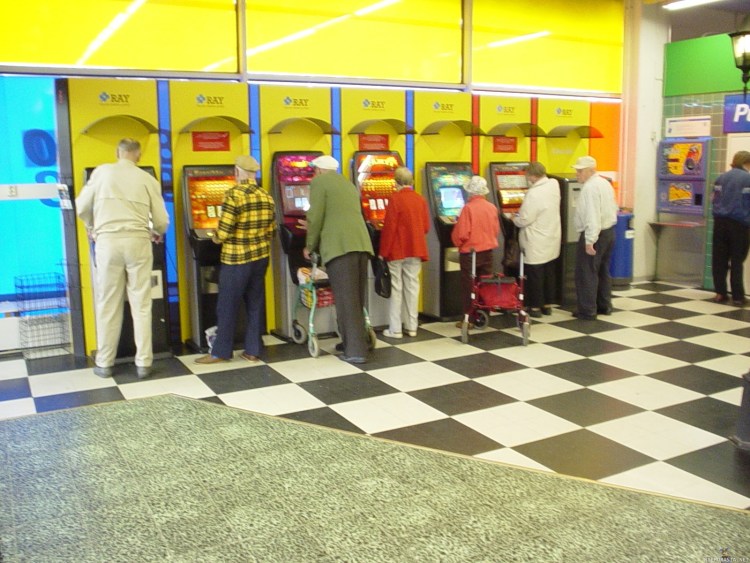The Nordic countries—Finland, Sweden, Iceland, Norway, and Denmark—are known for their close cooperation across various sectors. Yet, this unity does not extend to the gambling sector. Let’s look at how these factors influence the gambling landscapes in each of these nations.
Gambling in the Nordic countries

Gambling in the Nordic countries
The Nordic countries—Finland, Sweden, Iceland, Norway, and Denmark—are known for their close cooperation across various sectors. Yet, this unity does not extend to the gambling sector. The reasons could be varied, ranging from the lack of a common currency and economic disparities, to rivalry among neighboring countries. Let’s look at how these factors influence the gambling landscapes in each of these nations.
Denmark was the first Nordic country to give up its gambling monopoly
Denmark was the first Nordic country to abandon its gambling monopoly. In 2012, Denmark transitioned to a licensing system for gambling sites. To secure a Danish gaming license, a site must offer customer service in Danish, use the Danish currency for transactions, and pay taxes to Denmark. Following Denmark, Sweden relinquished its monopoly in 2019.
Today, gambling companies contribute significantly to Sweden’s tax revenue. Conversely, Iceland does not have a state-owned gambling company. In Iceland, gambling activities are limited to institutions and charities that are independent of state control.
Finland and Veikkaus
Finland stands unique in the European Union as the only country maintaining a state monopoly on gambling. In contrast, most EU nations adopt a regulatory approach similar to Sweden’s, where casino operators are required to pay a licensing fee and income tax, and are permitted to market and operate games within the country.
Across the EU, the specifics of gambling laws and regulations can vary slightly, leading major operators to establish country-specific casinos that comply with local regulations. Despite these differences, online casinos are broadly accessible in nearly all countries, regardless of whether they operate under a monopoly or a licensing system.
While Finland does not have a licensing system for foreign online casino operators, the country does have a state-run monopoly on all forms of gambling, including online casinos. The government controls gambling through three entities: Veikkaus Oy (which handles the lottery, betting, and casino games), RAY (which managed the slot machines and casino games until it merged with Veikkaus in 2017), and Fintoto Oy (which managed horse racing).
Finnish law does allow residents to access and play on foreign online gambling sites, but these operators cannot legally advertise their services within Finland and are not regulated by Finnish authorities. So, while Finnish players can technically gamble freely online, they are doing so on platforms that are not licensed or regulated by the Finnish government.
And what about those slots!
Historically, Finland developed an extensive network of slot machines, accessible in local kiosks, shops, and petrol stations, with over 15,000 machines still in operation. These machines generate substantial revenue, contributing to a prize pool that exceeds a billion euros annually. A report by Yleisradio’s MOT program highlighted the significant financial interests tied to gambling revenues, emphasizing that many organizations that benefit from these funds have become reliant on them for survival.
The revenue generated from the slot machines goes to Veikkaus, the state-owned company that holds the exclusive right to operate gambling in Finland. and are then distributed to support public interest activities in areas such as sports, culture, science, youth work, health, and social welfare. Essentially, the funds help support various societal benefits across Finland, contributing to the overall welfare of the Finnish public. This system is designed to ensure that the proceeds from gambling are used for positive social impact.
You can find Tips for choosing the best casino here.
Sweden and licences
In January 2019, Sweden implemented a licensing system for gambling. Throughout that year, these licensed entities generated a turnover of SEK 24.8 billion (approximately €2.34 billion). The primary revenue sources were online casinos and betting platforms. In contrast, lotteries and slot machines accounted for nearly SEK 6 billion, a figure modest in comparison to Finland’s gambling revenue. Notably, Finland remains unique in the region, offering widespread public access to gambling, typically located post-checkout in stores.
By the end of 2019, Sweden had issued 96 gambling licenses, with 70 of these active in the online casino and betting sector. However, potential regulatory changes by the Swedish authorities and the impact of events in 2020 could challenge this system’s stability.
Sweden also supports responsible gambling through spelpaus.se, a self-exclusion registry that helped over 8,000 people in 2019 manage their gambling habits by blocking their access to all licensed gambling activities.
Within a year of the new regime’s initiation, some major casino operators exited the Swedish market, citing the market’s limited size as incompatible with their business models. A similar trend could occur in Finland if it adopts a licensing model; initial intense marketing efforts by new casinos would likely diminish over time, mirroring trends in other regions. Additionally, like many European countries, Sweden enforces strict regulations on gambling advertising to prevent exposure to minors.
Norwegian gambling block
Finland’s gambling regulations can be compared to Norway’s. In Norway, a type of monopoly exists, maintained by a payment block. This payment block was introduced in 2010, following the establishment of an exclusive system in 2008.
In Norway, it is legal to gamble at foreign online casinos. However, local banks cannot transfer funds to companies that do not hold a Norwegian license. The Norwegian Gaming Authority, Lotteri- og stiftelsestilsynet, enforces these payment blocks.
As a result, direct online banking transactions to online casinos are effectively impossible. This means services like Pay N Play via Trustly cannot be used for money transfers in Norway. Instead, players commonly use credit cards or online wallets such as Neteller and Skrill.
Despite these restrictions, the impact on gambling activities outside Norway has been minimal. Statistics indicate that the percentage of outbound gambling has remained relatively stable year over year. Nonetheless, online casinos continue to actively target Norwegian players.








